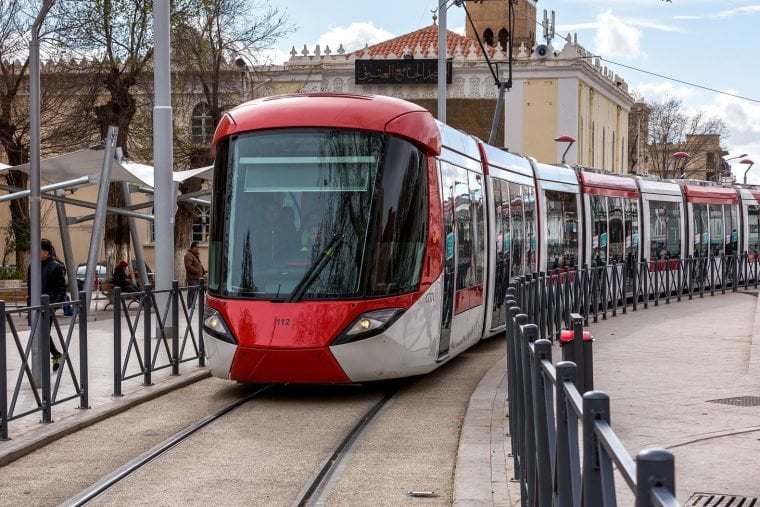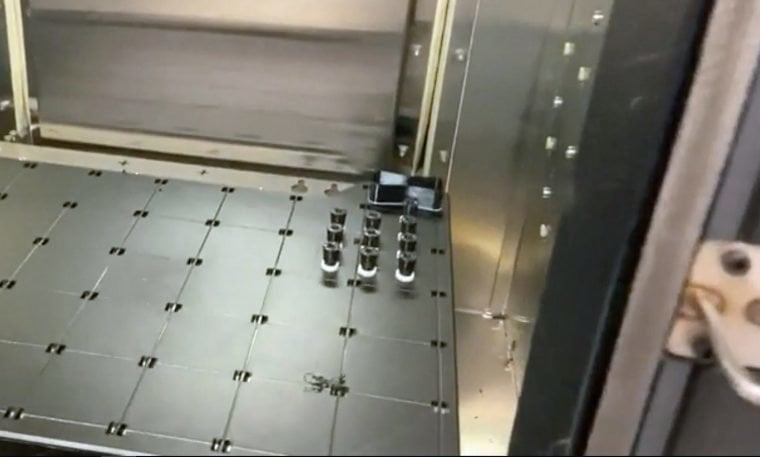railway-international.com
24
'21
Written on Modified on
ALSTOM LEVERAGES STRATASYS FDM 3D PRINTING TO CREATE EMERGENCY SPARE PARTS AND MINIMIZE DOWNTIME OF SÉTIF TRAMWAY NETWORK
Alstom, the global leader in green and smart mobility reduces lead times for spare parts from 45 days to 48 hours using F370 3D Printers. Company also saves Sétif Tramways around 6,000 euros by 3D printing spare parts on demand in favour of traditional production methods.

Leading societies to a low carbon future, Alstom which develops and markets mobility solutions that provide the sustainable foundations for the future of transportation, is driving innovation in spare part production using 3D printing/additive manufacturing for on-demand maintenance and repair operations. Leveraging this technology, the company is minimizing lead time for customers and ensuring transportation networks remain operational.
“The agility that 3D printing gives us is critical for Alstom strategically as a business,” explains Aurélien Fussel, Additive Manufacturing Programme Manager at Alstom. “Where our customers depend on spare parts to maintain operations, having this in-house production capability means we can bypass our traditional supply chain and respond quickly and cost-effectively with a solution to their needs.”
Emergency spare parts 3D printed and delivered within 48 hours
This manufacturing agility was recently demonstrated when Alstom was able to ensure that one of its customers, Algeria’s Sétif Tramways, avoided approximately 45 days of lead time and several thousand euros in unwanted expense after a recent maintenance issue. Sétif discovered that tram headlights were being broken by the accumulation of water and stones entering small holes as they ran. As a result, Alstom was approached with an urgent request for spare parts to plug the holes and prevent any further damage to the trams.
Via its dedicated internal 3D printing hub, Alstom deployed its FDM®-based Stratasys F370 3D Printer to create rubber drainage plus to seal the holes in the trams’ headlights. A dozen were designed, produced and delivered within just 48 hours.
“We avoided the minimum three-week production lead-time typically required of traditional manufacturing methods and ensured the tram network’s operations were minimized,” Fussel said. “For our transportation customers like Sétif, every minute of lead time within a network means lost revenue, so every minute we can win back when solving maintenance issues reduces that loss.”
In addition to the cost spared by avoiding lengthy lead time, using Stratasys FDM 3D printing instead of more expensive labour-intensive molding or casting methods led to additional savings for Sétif in the form of an 80% reduction in fixed cost. Together, the project saved Sétif approximately 6,000 euros’ fixed cost.

Advanced production-capable materials prove critical
For Alstom, the ability to produce one-off replacement parts and avoid the high-cost and long-lead time demanded of conventional tooling is a significant asset. However, as Jaume Altesa, Barcelona 3D Printing Hub Manager at Alstom at Alstom, explains, without advanced and robust 3D printing materials capable of handling the rigours of heavy, moving transportation vehicles, the undertaking would be in vain.
“Having production-grade materials are essential to providing our customers ready-to-install 3D printed parts for use on vehicles,” Altesa continues.
For example, Alstom 3D printed the rubber drainage plugs for Sétif using an advanced highly durable elastomer material called FDM TPU 92A. Combining flexibility and stretch with abrasion and tear resistance, this elastomeric material proved ideal for the demands of sustained exterior use – with the parts still running today.
“As we’ve seen during COVID-19, in some regards 3D printing has had its watershed moment, with more and more manufacturers embracing the technology to increase their production agility and reduce supply chain dependency,” comments Yann Rageul, Head of Manufacturing Business Unit for EMEA, Stratasys. “As a longstanding customer of ours, Alstom is a shining example for these companies having pioneered the use of additive manufacturing for spare part production for many years. Not only to optimize its own efficiencies, but to also deliver innovative solutions for customers that simply would be unviable with traditional manufacturing.”
Alstom helped set-up Algeria’s Sétif Tramway project in 2018, supplying 26 Citadis trams for the first public tramway in the city of Sétif. Alstom’s operations in the country span more than 60 years, with the company having also supplied integrated tramway systems to the cities of Algiers, Oran and Constantine.
www.stratasys.com

